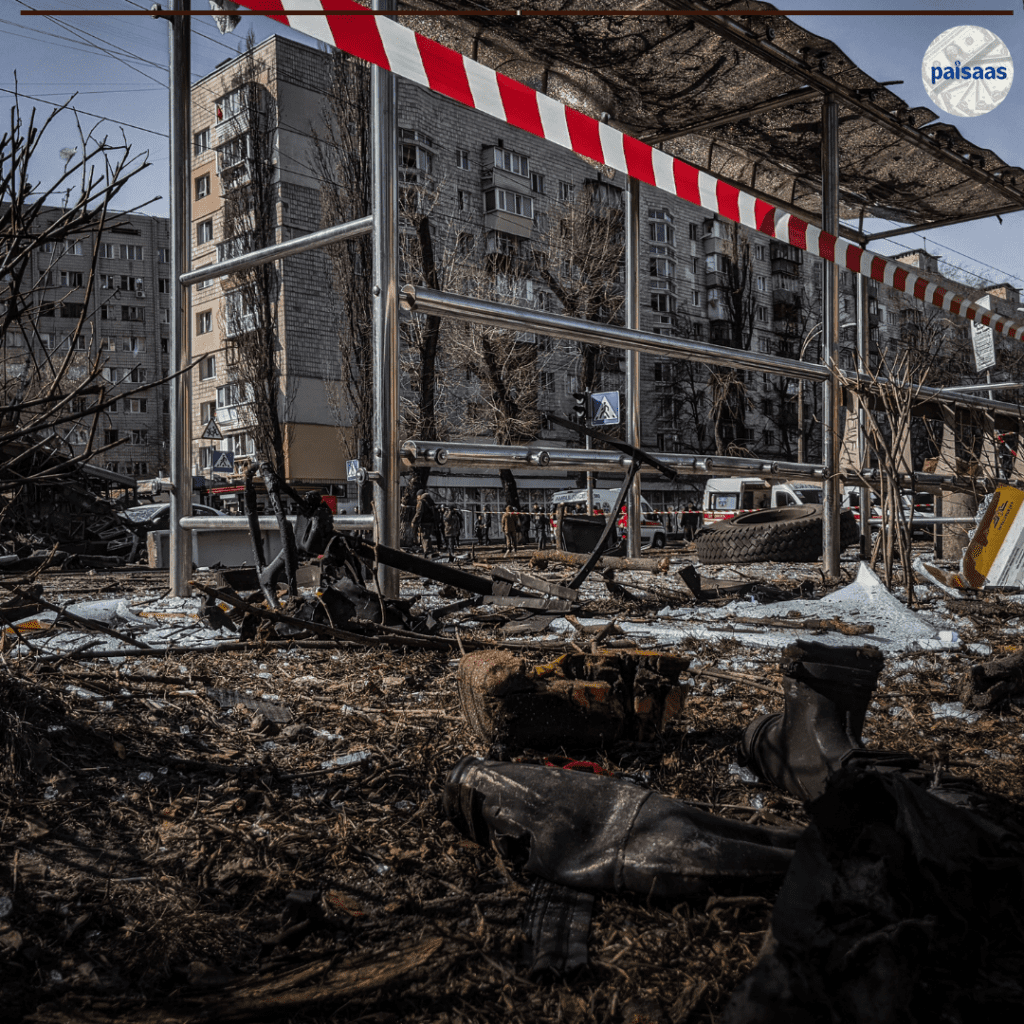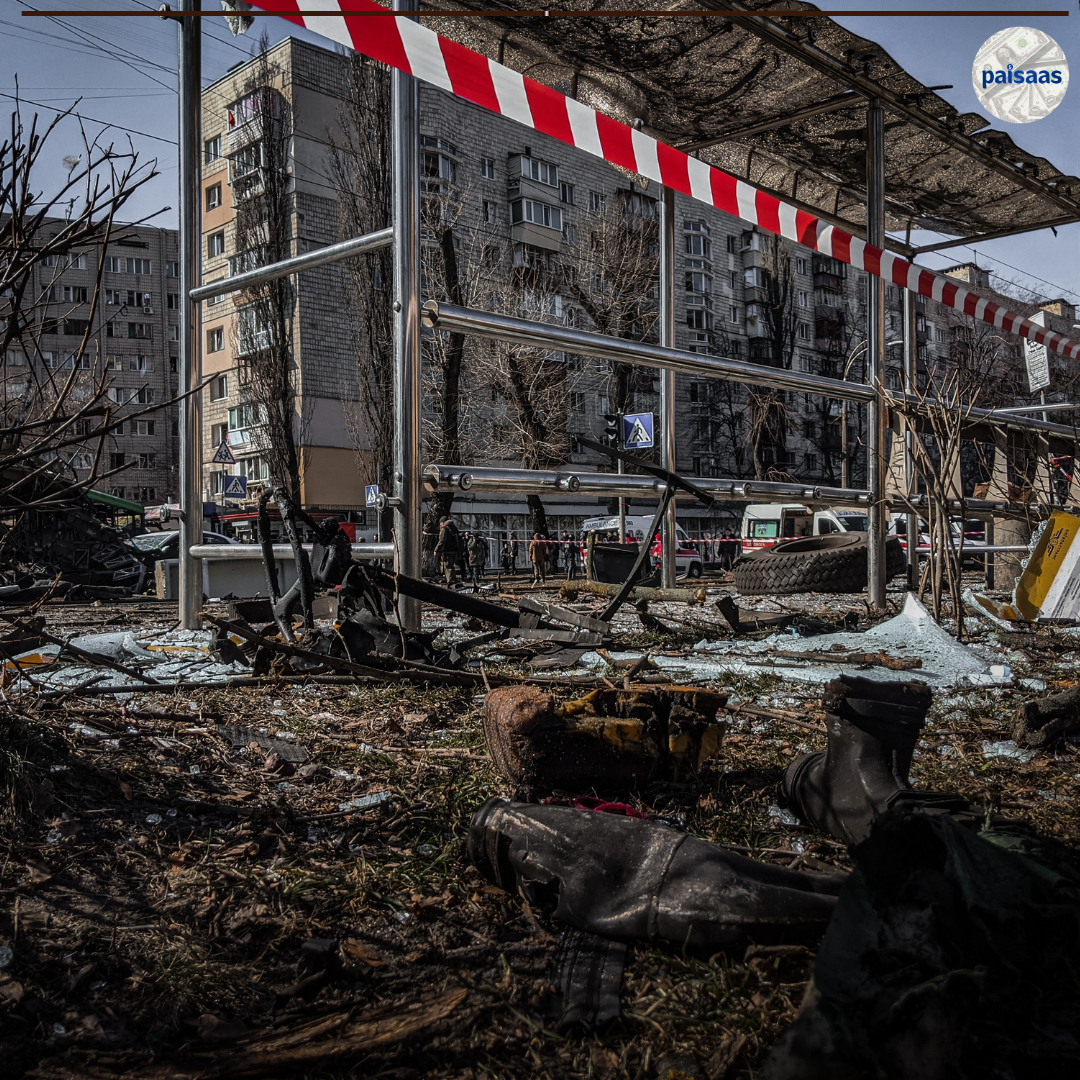

Russia-Ukraine War Russia Attacks Western Ukraine City Deadly
Russia-Ukraine War Russia Attacks Western Ukraine City Deadly
KYIV, Ukraine — The bloodiest strike on the western Ukrainian city of Lviv, which has largely been spared the brunt of the fighting due to its distance from the front lines, was carried out by Russian missiles and resulted in the destruction of dozens of homes. At least four people were killed in the attack.
Ihor Klymenko, the minister of internal affairs, said on Telegram that rescue workers were searching through the wreckage for those who could have survived. According to him, at least seven persons were rescued from a residential complex where the third and fourth floors had been damaged. In a statement that was posted on Twitter, President Volodymyr Zelensky promised a response and added that it will be a “strong one.”
“This is the largest attack on Lviv’s civilian infrastructure since the beginning of the full-scale invasion,” Andriy Sadovyi, the mayor of the city, said in a video that was released on Twitter. He was standing in front of wrecked automobiles, smashed windows, and debris that was thrown all over the street at the time.
Львів
— Gulli_ver (@Gulli_ver_sn) July 6, 2023
"⚡Це найбільша атака на цивільну інфраструктуру Львова від початку повномасштабного вторгнення.
Є загиблі та поранені.
Зруйновано більше 50 помешкань." pic.twitter.com/kj0Ds0yJJI
The chief of the military administration for the region stated that a piece of infrastructure was destroyed as well, but he did not offer any further information.
It was not immediately clear how many missiles had been fired or how well the city’s air defences had performed in response to the attack. The debris that falls from intercepted missiles has the potential to kill people on its own, in addition to starting fires and causing other forms of harm. Since Russia’s full-scale invasion of Ukraine a year ago, Lviv has been a regular stopping point for volunteers on their way to the front lines. Lviv is around 75 kilometres (47 miles) from the border with Poland.
Lviv. Consequences of the night attack by Russian terrorists. Unfortunately, there are wounded and dead. My condolences to the relatives!
— Володимир Зеленський (@ZelenskyyUa) July 6, 2023
There will definitely be a response to the enemy. A strong one. pic.twitter.com/9yl1MT6Eu4
At around 1:30 in the morning on Thursday, air raid sirens began sounding in many sections of Ukraine, including the capital city of Kyiv, and quickly expanded to neighbouring regions. According to the alert maps, warnings were broadcast over the entirety of the nation by 2:30 in the morning. The Ukrainian Air Force issued a warning that several missiles were travelling in a westerly direction.
Almost immediately after, there were reports of explosions in Lviv, both from the mayor and from the news media. The authorities said that the air defences were operational and recommended inhabitants to remain in shelters during the storm.
Just before 3 in the morning, the administrator in charge of the Lviv area, Maksym Kozytskyy, posted on the messaging app Telegram the phrase “It was very loud.” As the possibility of missile attacks continued to exist, he advised them to remain in a secure location while assuring them that further information would be provided.
After the all clear was given at around 3:20 in the morning, sirens of ambulances could be heard across the city.
The President of Ukraine, Volodymyr Zelensky, stated that he had sent a warning to the United States of America and other Western nations that the counteroffensive would proceed slowly the longer it took partners to provide the promised weaponry and ammunition that was required for the mission.
Mr. Zelensky stated that Ukraine had hoped to launch the military assault sooner but was had to wait for the advanced equipment in an interview with CNN that was broadcast on Wednesday evening.
“I’m grateful to the United States as the leaders of our support, but I told them, as well as the European leaders, that we would like to start our counteroffensive earlier, and we need all of the weapons and matériel for that,” he said via an interpreter. “I told them that we would like to start our counteroffensive earlier, and that we need all of the weapons and matériel for that.”
“Why? Simply because we will make less progress if we have a later start.”
The sluggish advance has been a constant theme from allies and pro-Russian military bloggers judging the counteroffensive, which has faced massive Russian defences. This is because the counteroffensive has encountered extensive Russian defences.
The chairman of the Joint Chiefs of Staff, General Mark A. Milley, stated in a statement that was released last week that the Ukrainian soldiers were “advancing steadily, deliberately.”
The general continued his remarks by saying, “Slow advance is very deliberate,” which he delivered on Friday at the National Press Club in Washington.
He stated that it did not come as a surprise to him that the long-awaited campaign to recover area that had been captured by Russia was not making as much progress as many analysts had thought it would.
According to General Milley, “no one should have any illusions about any of that,” since “it’s going to be very long,” and “it’s going to be very, very bloody,” respectively. This is a fight to the death for the Ukrainian soldiers as they charge across minefields and into the trenches. Therefore, the answer is that yes, it does go a little slowly, but that is just the way battle is.
Because Ukraine has not yet committed the majority of its reserves, which include troops that were trained in Europe over the course of the winter and spring and were outfitted with armament from NATO nations, the country retains the ability to bring even more force into play.
During his appearance with CNN, Mr. Zelensky reiterated his long-standing call for the production of even more cutting-edge weaponry and F-16 fighter planes built in the United States.
According to what he had to say, “in some directions we cannot even think of starting” the counteroffensive since we do not have the required armaments. It would be terrible to subject our people to the long-range fire of the Russian military, which might easily kill them.




